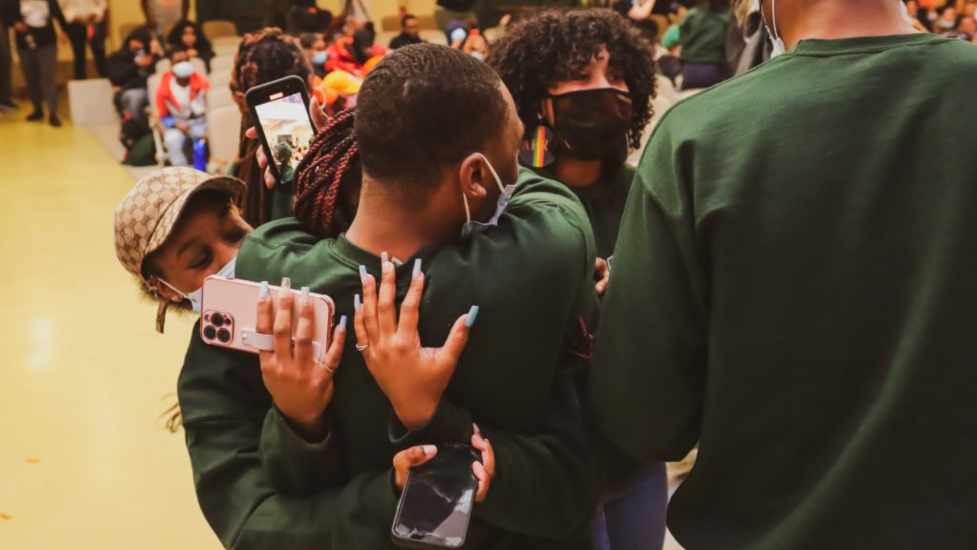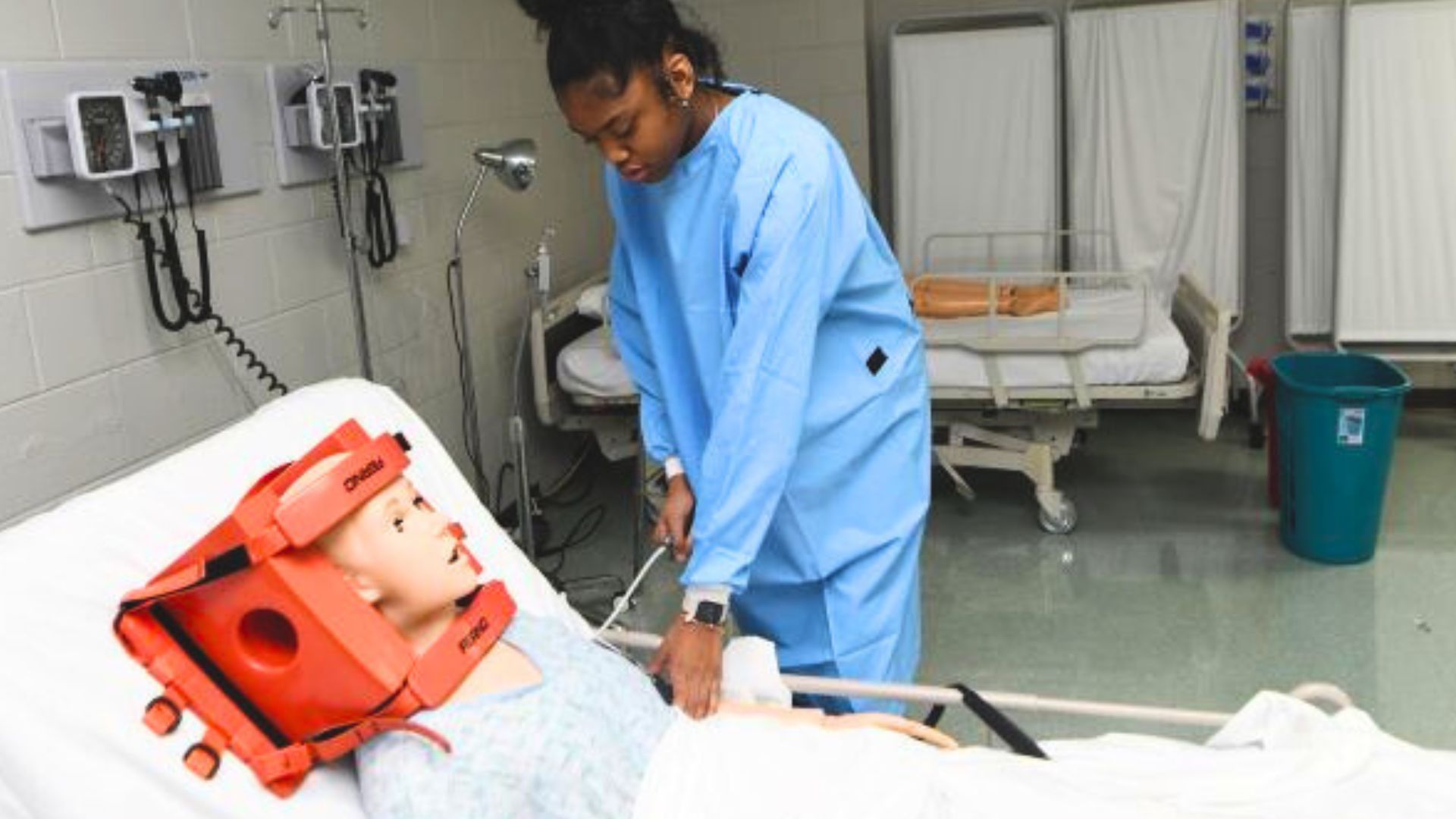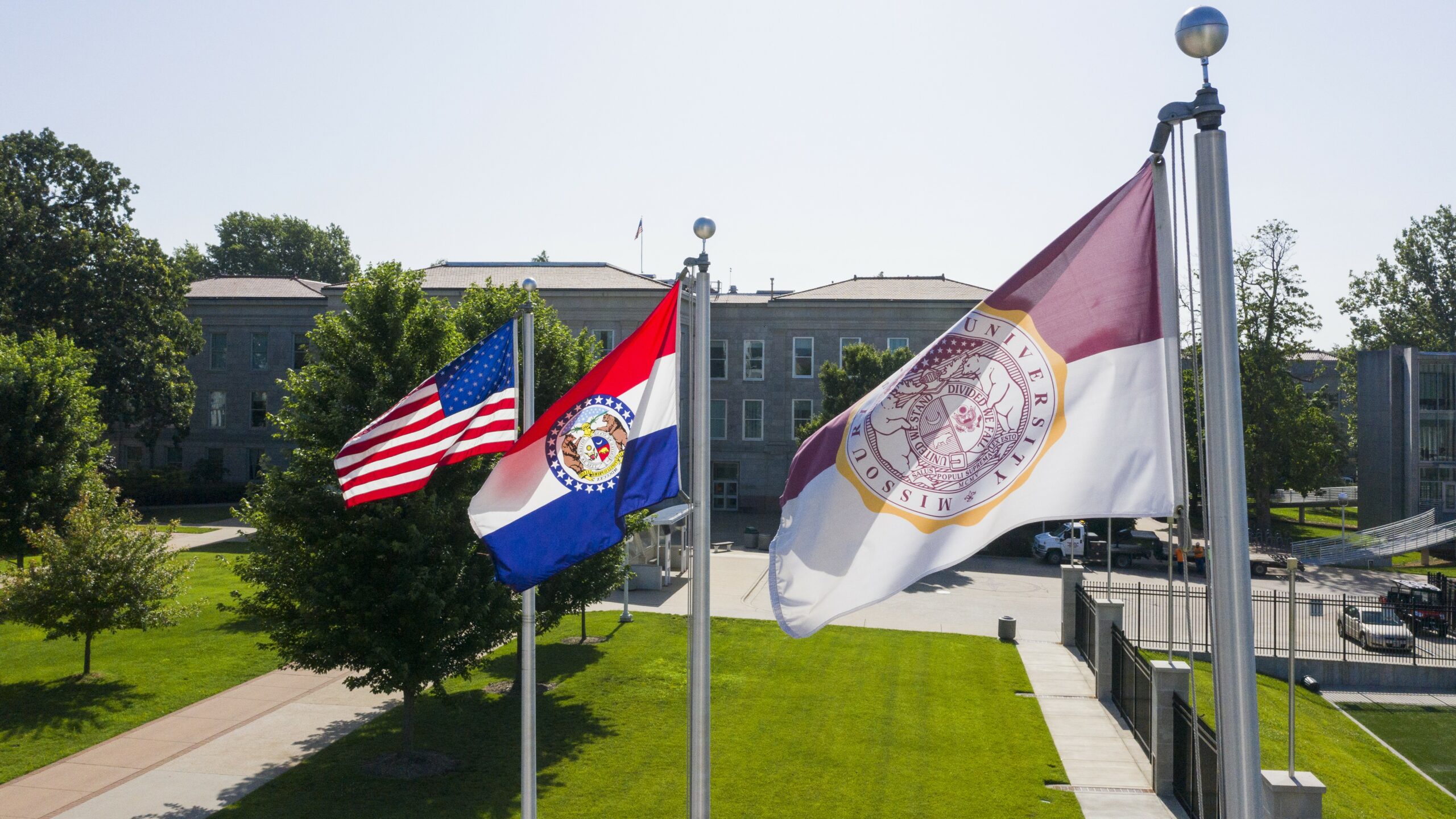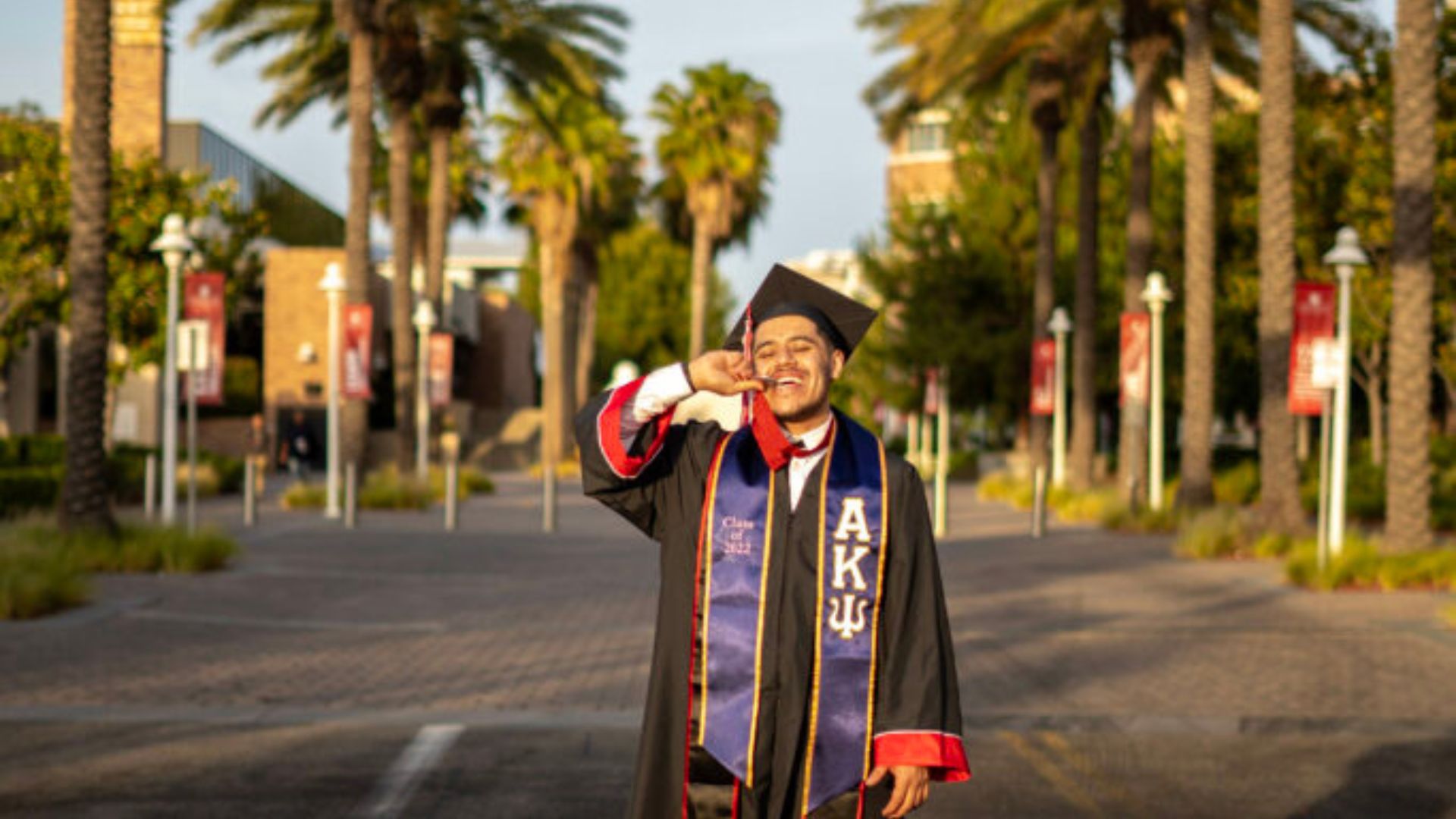Funders of a new initiative in Chicago have a “large and audacious” goal to expand the path of economic success beyond the public school system, offering full postsecondary scholarships to thousands of high school graduates and their parents. The goal: breaking down barriers to economic mobility for generations to come.
Launched just a couple months ago and appropriately named Hope Chicago, the new program already has awarded full scholarships to 4,000 high school students in five Chicago public high schools to college and other postsecondary programs.
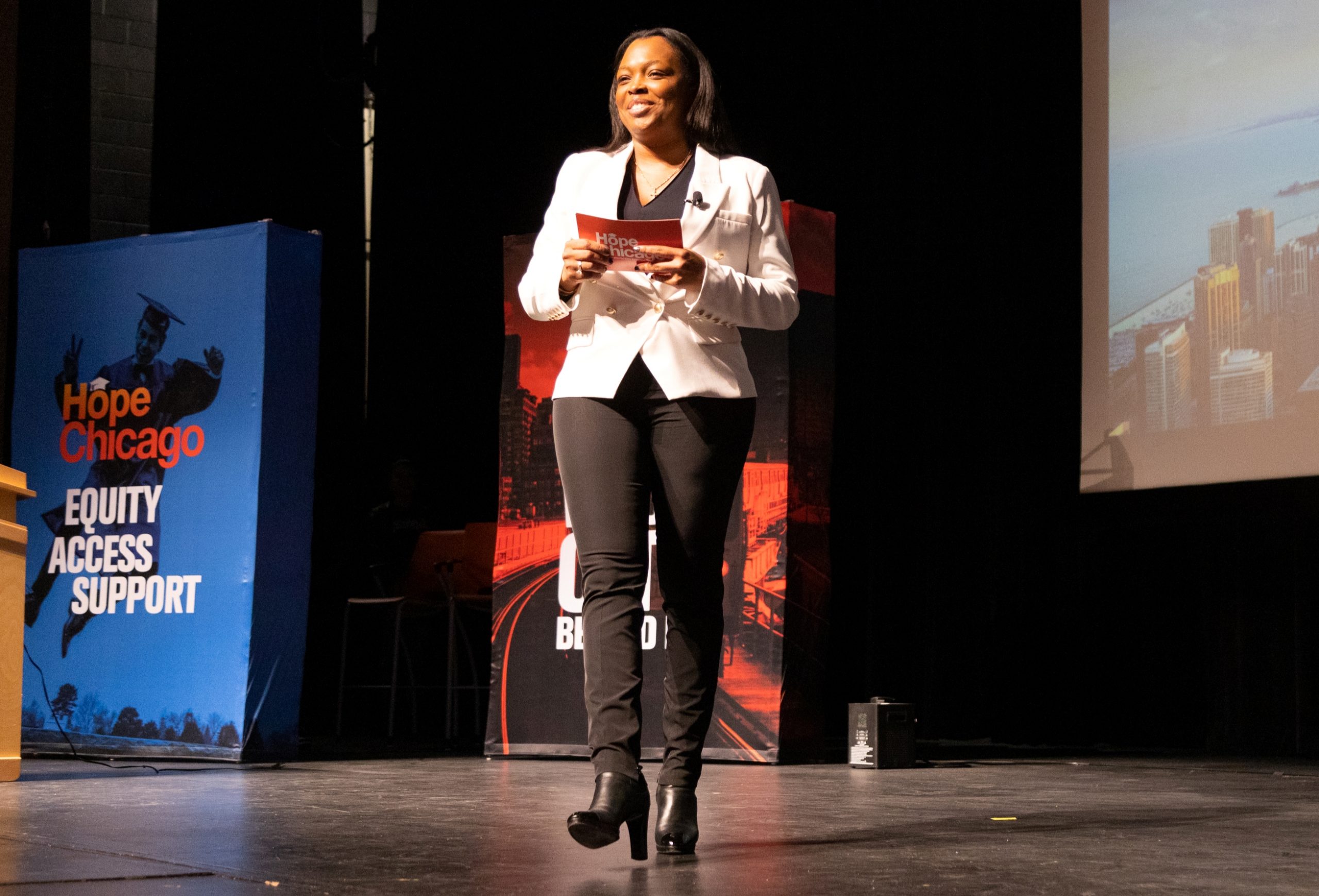
“Chicago Public Schools (CPS) graduated more students from high school in the last ten years, but are slower to produce the kind of outcomes with regards to college completion we’ve desired,” says Dr. Janice Jackson, CEO of Hope Chicago.
“We know finances is the number one factor in people’s decision-making – whether or not to attend school. Now, there’s one less barrier to college.” Jackson knows the needs of CPS students quite well, having most recently been the CEO there before moving to Hope Chicago.
The program is modeled after one in Toledo, Ohio, founded by entrepreneur Pete Kadens. He and Chicago-area entrepreneur Theodore Koenig founded Hope Chicago.
“When we launched Hope Chicago, we were aiming to do something no other scholarship program in Illinois has ever done, and that’s to offer debt-free scholarships to CPS students and their parents, a unique multi-generational approach that will create new opportunities not only for students but entire families to build economic success and stability. Hope Scholars won’t just be multi-generational, they’ll make an impact that will last for multiple generations to come,” Koenig says.
He and Kadens contributed $10 million and $11 million themselves, respectively. Fundraising since September 2021, the organization raised $40 million from corporate partners, financial institutions, and foundations. The goal is to ultimately raise $1 billion to support students and their families over the next decade.
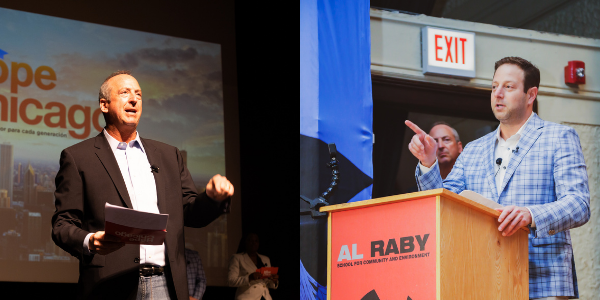
‘No fear of financial hurdles’
Noble-Johnson College Prep School student Shanyia Daughrity-Good, 18, is one of the recent recipients of the Hope Chicago scholarship. She had been prepared to take out as many loans as needed to study nursing and psychology in college. “Hope Chicago has drastically changed my life. This scholarship has provided me with the unique opportunity to accomplish my postsecondary goals with no fear of financial hurdles,” says Daughrity-Good.
The scholarships cover full rides – tuition, books, fees, room and board – towards earning a college degree from 20 partner schools in Illinois including City colleges of Chicago, Loyola, and IIT. More partner schools may soon be eligible. Full scholarships also cover the costs of obtaining post-secondary credentials such as those for skilled trades. Students attending a school outside of a partner school will receive stipends.
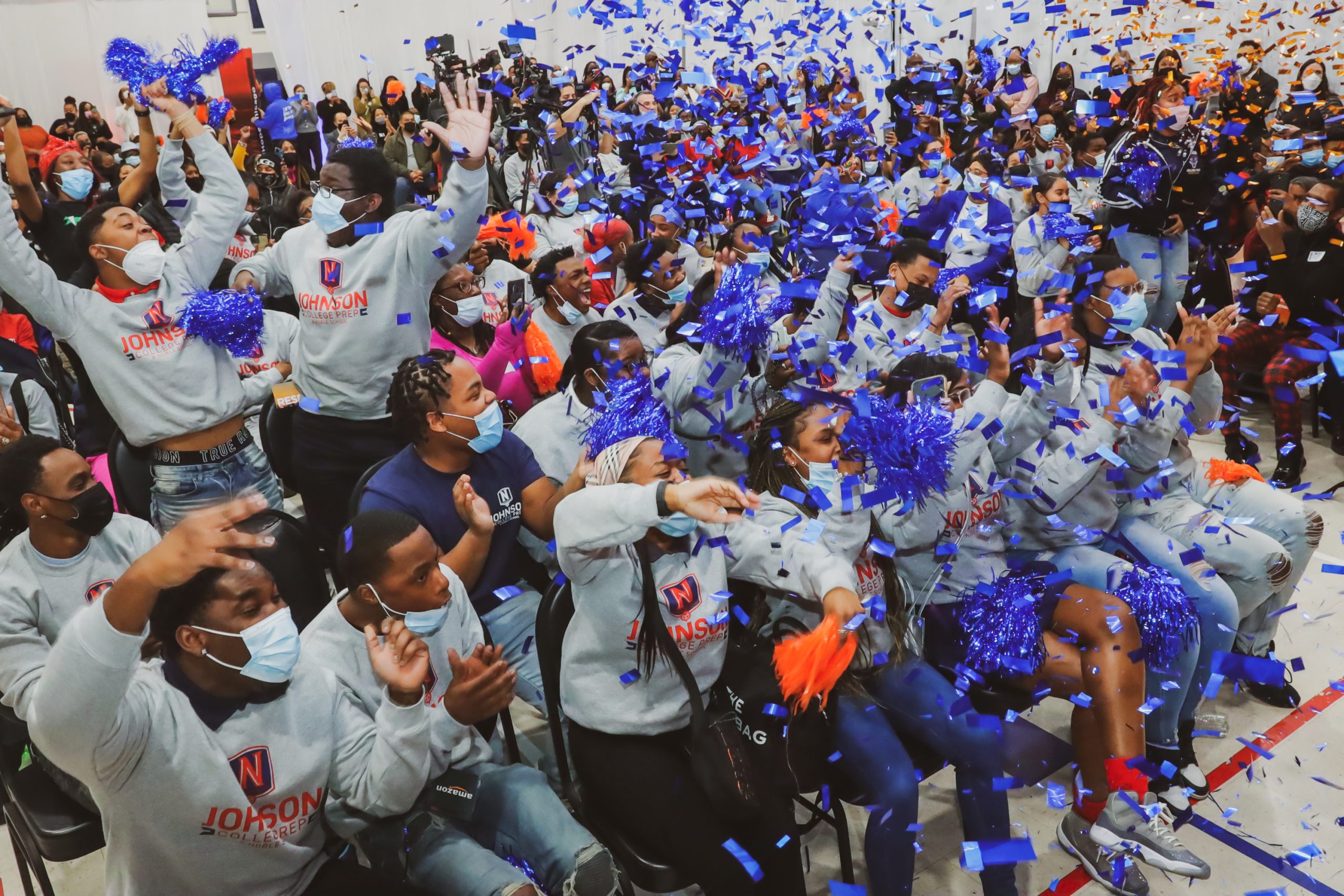
In determining the recipient schools and students, Jackson says they analyzed data for each neighborhood. Hope Chicago looked for schools that didn’t already have college partnerships, evaluated principal leadership, and reviewed college matriculation completion data to determine where the need was the greatest. There are no GPA requirements.
“If we’re going to achieve ambitious goals, we’ve got to have programs that work for everybody. If a student graduates from high school and wants to go to City College, why should they receive less support than a student who goes to an elite school across the country?” asks Jackson. “Our model and value system is very different. It’s more about college access than merit; giving every student access to the middle class starts with giving them better support to higher education.”
A Multigenerational Approach
Scholarships extend beyond the students. Their parents are also eligible to return to school and pursue degrees and credentials as well. To be eligible, the student must remain enrolled in one of Hope Chicago’s approved programs “to create a commitment between parent and student,” Jackson says.
Metrics from the Toledo model of the program indicated the retention rate for students whose parents were also enrolled in the program was almost double than the national average for African American students. So far, 200 parents expressed interest in returning to school or attending college for the first time, exceeding Hope Chicago’s expectations.
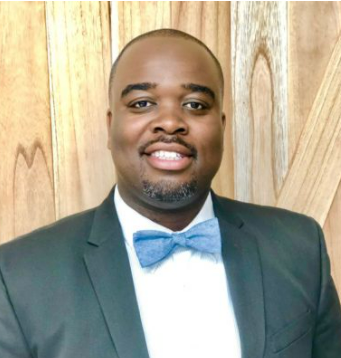
“This scholarship has the potential to change entire communities! Five hundred Noble Johnson College Prep scholars and their parents will have the opportunity to change their lives through a debt free post-secondary education,” says Jonas Cleaves, principal from Noble-Johnson College Prep.
“So many of our scholars have to grow up fast to help support their families financially. Parents have also put their hopes and dreams on hold to work part time jobs and small gigs to help make ends meet. The burden of paying for college tuition and related expenses has become an additional hurdle for our families. The Hope Scholarship will allow our younger scholars to focus on their education and enriching activities while helping their parents restart their journey to upward mobility.”
Similar to “signing days” for high school athletes, the high school senior recipients will have “decision day” on May 1 and reveal where they will take their studies next. Until then, Jackson is basking in the memory of announcement day.
“It was a moment. I was lucky enough to work in education for 20 years and definitely had my share of feel-good moments. The euphoria was contagious,” she says. “It’s been a tough few years and I heard time and time again, ‘This is the best news I’ve heard in a long time.’ I think that pretty much sums it up.”

